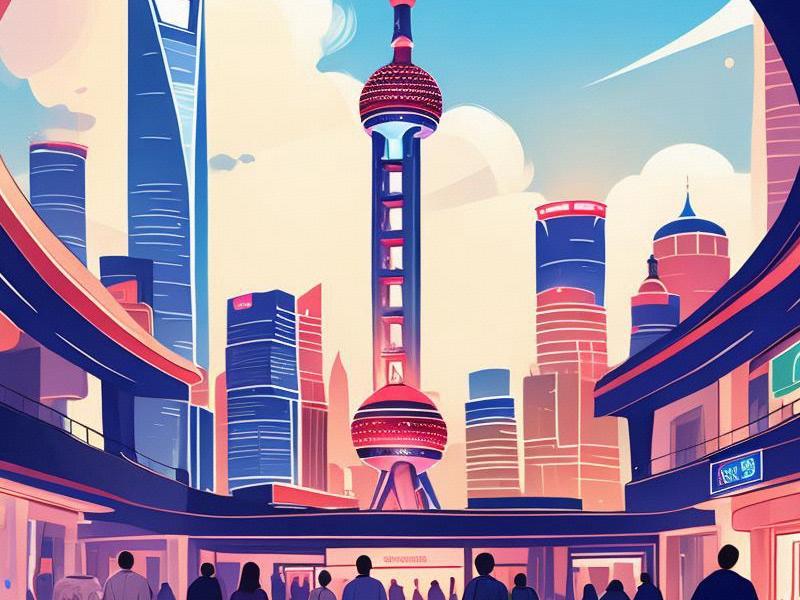
Shanghai, known as the "Paris of the East," has a long history of entertainment culture. In the early 20th century, the city was famous for its bustling entertainment districts, such as the French Concession and the Bund, where people could enjoy a variety of performances, including traditional Chinese opera, Peking opera, and Western-style concerts. These entertainment halls were not just places for leisure but also served as social hubs where people could gather, network, and experience the vibrant cultural life of the city.
Today, Shanghai's entertainment halls have evolved to reflect the city's dynamic and cosmopolitan character. They continue to preserve traditional arts while also incorporating modern elements to cater to a diverse audience. These venues are not only places for entertainment but also serve as cultural landmarks that showcase the city's rich history and its embrace of modernity.
One of the most notable examples of a traditional entertainment hall in Shanghai is the Tianchan Grand Theatre. Located in the heart of the city, this historic venue has been a cornerstone of Shanghai's cultural scene for over a century. It is renowned for its traditional Chinese opera performances, which attract audiences from all over the world. The theatre has undergone several renovations to preserve its historical charm while also providing state-of-the-art facilities for performers and audiences alike.
In addition to traditional venues, Shanghai is home to numerous modern entertainment halls that offer a wide range of cultural experiences. The Shanghai Grand Theatre, for instance, is a world-class performing arts center that hosts a variety of performances, including opera, ballet, symphony concerts, and contemporary dance. Designed by the renowned French architect Paul Andreu, the theatre is a masterpiece of modern architecture and a symbol of Shanghai's commitment to cultural excellence.
上海龙凤419贵族 Another prominent modern entertainment venue is the Shanghai Culture Square, which houses the Shanghai Symphony Orchestra and the Shanghai Ballet. This multi-functional complex features a concert hall, a theater, and a library, making it a hub for cultural activities. The square is a testament to Shanghai's efforts to crteeaa vibrant cultural scene that caters to the diverse tastes of its residents and visitors.
Shanghai's entertainment halls are not just places for performances; they also play a crucial role in preserving and promoting traditional arts. Many of these venues host workshops, masterclasses, and cultural events that aim to educate and inspire the next generation of artists. For example, the Shanghai Opera House offers regular classes and workshops on traditional Chinese opera, allowing young performers to learn from some of the most accomplished artists in the field.
The city's commitment to preserving traditional arts is also evident in its efforts to protect and restore historical buildings. The Dashijie Theater, located in the former French Concession, is a prime example. This historic venue has been meticulously restored to its original grandeur and now serves as a venue for traditional Peking opera and other cultural performances. The restoration project not only preserved a piece of Shanghai's architectural heritage but also provided a space for the continuation of traditional arts in a modern context.
In addition to traditional and modern entertainment halls, Shanghai is also home to a growing number of themed entertainment venues that cater to specific interests and hobbies. For instance, the Shanghai Toy Museum is a unique venue that showcases the history and evolution of toys from around the world. Visitors can explore exhibits on antique toys, interactive displays, and even participate in hands-on activities. This museum is a testament to Shanghai's efforts to crteeaa diverse and inclusive cultural scene that appeals to people of all ages and interests.
上海龙凤419杨浦 Another example of a themed entertainment venue is the Shanghai Propaganda Poster Art Centre, which houses a collection of propaganda posters from different periods in Chinese history. These posters, which were used for political and social campaigns, provide a fascinating insight into the country's history and culture. The centre also hosts exhibitions and events that explore the role of art in society and its impact on public opinion.
Shanghai's entertainment halls are not only cultural landmarks but also economic drivers for the city. They attract millions of visitors each year, contributing significantly to the local economy. The tourism industry, in particular, benefits from the city's vibrant cultural scene, as visitors come from all over the world to experience the unique blend of tradition and modernity that Shanghai offers.
The city's government has recognized the importance of entertainment halls in promoting cultural tourism and has taken steps to support their development. Initiatives such as the "Shanghai Cultural Tourism Development Plan" aim to enhance the city's cultural offerings and attract more tourists. These plans include the construction of new entertainment venues, the restoration of historical buildings, and the promotion of cultural events.
爱上海 In addition to economic benefits, Shanghai's entertainment halls also play a crucial role in fostering social cohesion and community engagement. They provide a space for people to come together, share experiences, and celebrate their cultural heritage. The diverse range of performances and activities offered by these venues ensures that there is something for everyone, regardless of age, background, or interests.
Moreover, Shanghai's entertainment halls are a testament to the city's ability to adapt and innovate in a rapidly changing world. By preserving traditional arts while embracing modern trends, they offer a unique cultural experience that reflects the city's dynamic character. This blend of tradition and modernity not only enhances the city's cultural scene but also contributes to its global reputation as a hub of creativity and innovation.
In conclusion, Shanghai's entertainment halls are a vital part of the city's cultural landscape. They offer a rich and diverse range of cultural experiences that cater to the tastes of both residents and visitors. By preserving traditional arts and embracing modernity, these venues ensure that Shanghai remains a vibrant and dynamic cultural hub. As the city continues to evolve, its entertainment halls will undoubtedly play an increasingly important role in shaping its cultural identity and attracting the world's attention.
